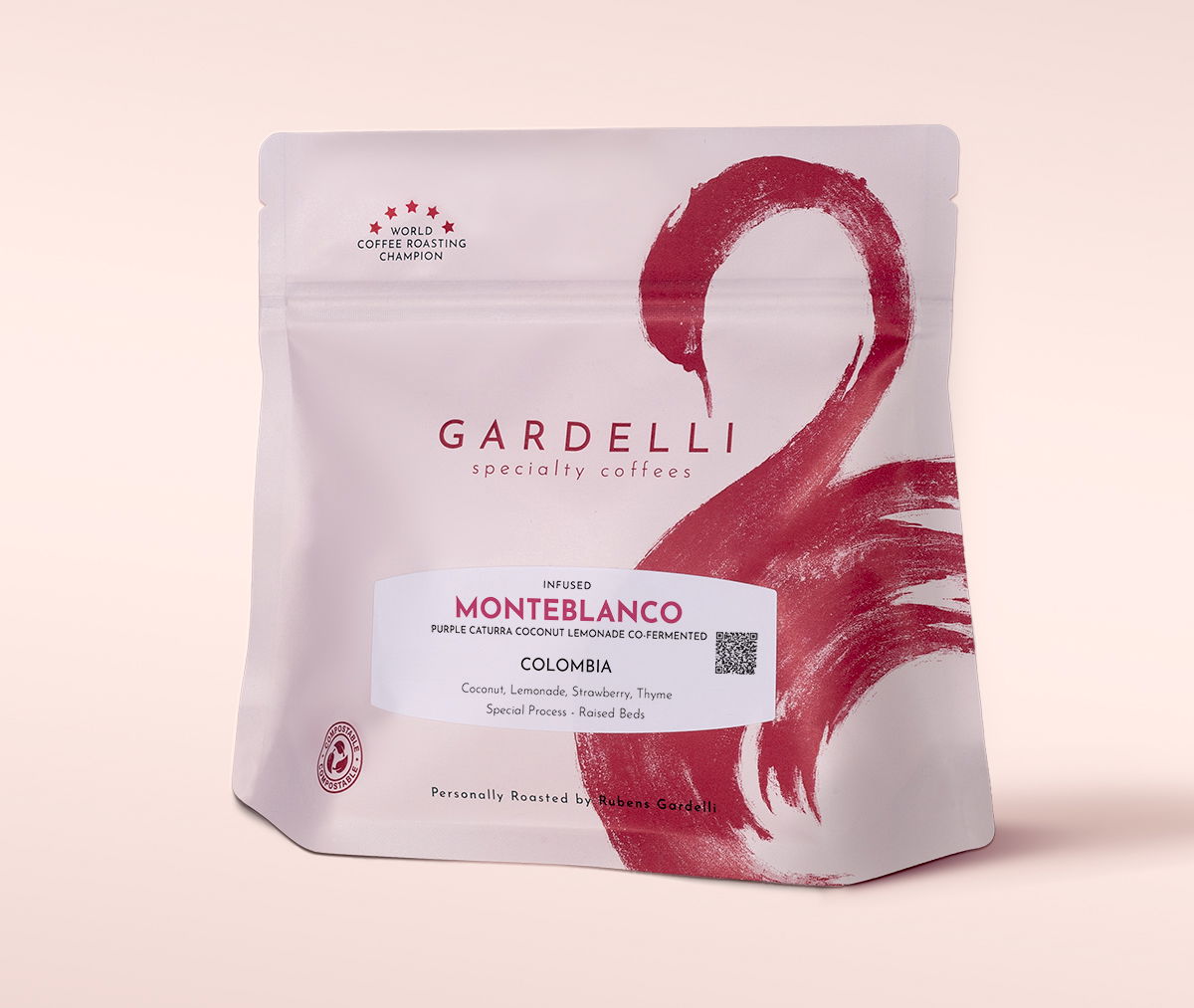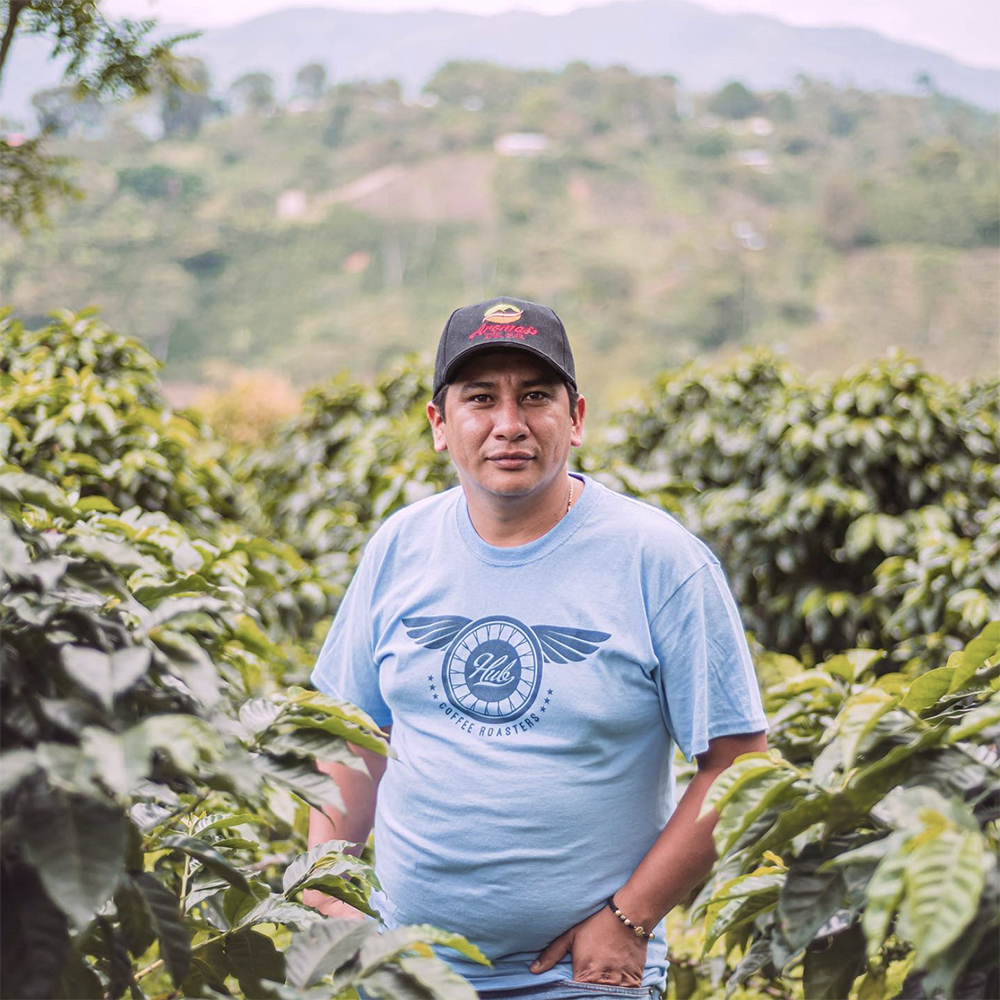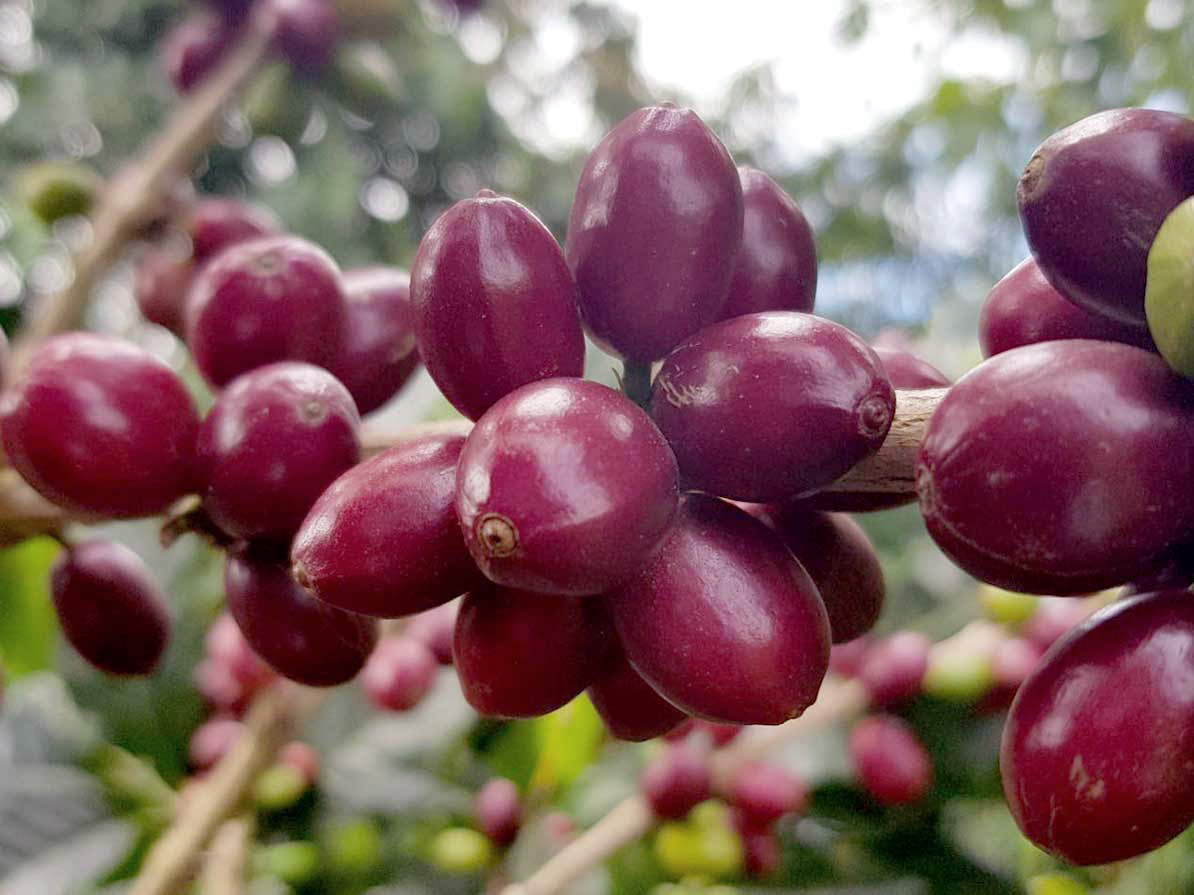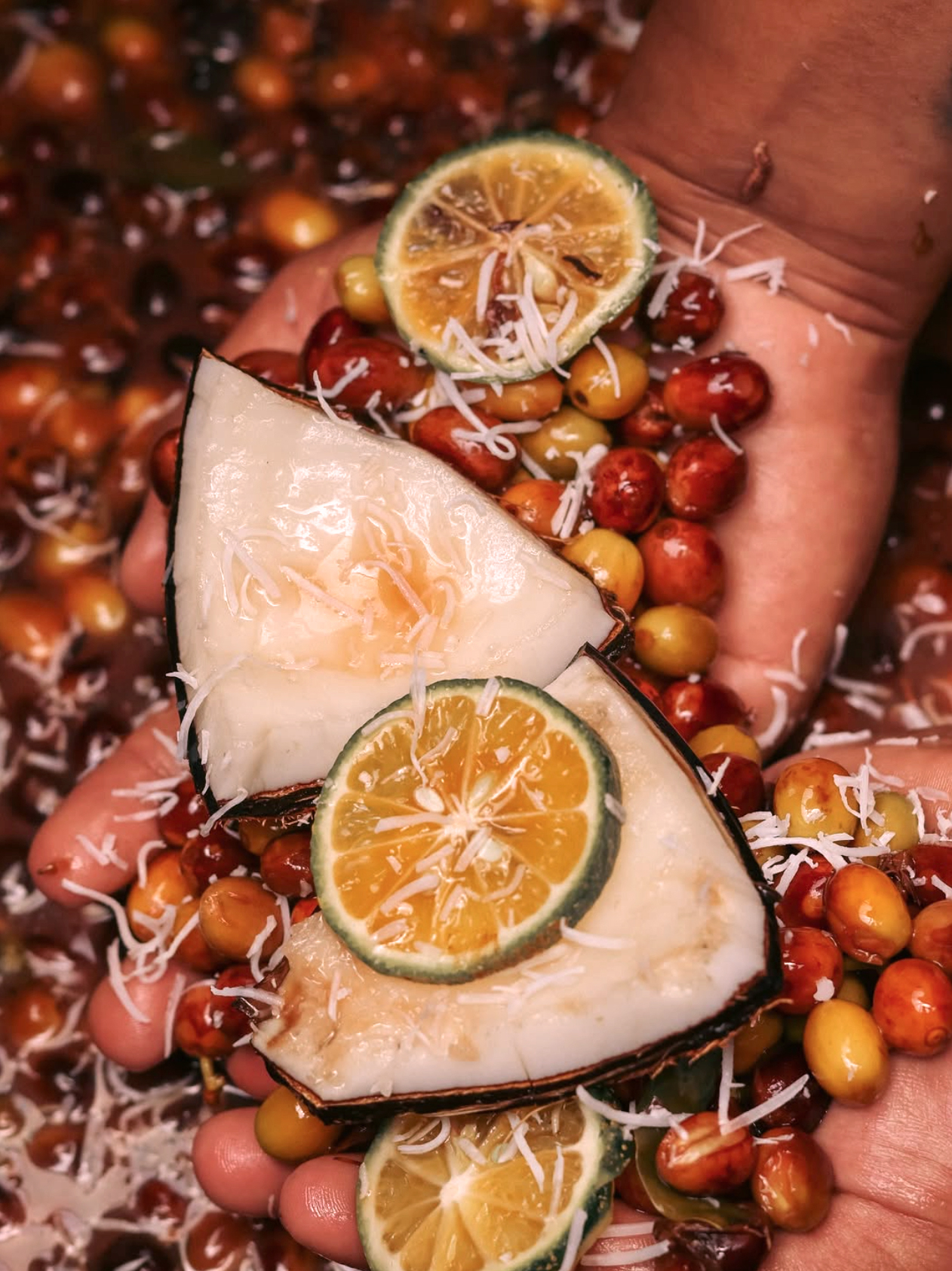







Colombia
250g
Cup Notes: Coconut, Lemonade, Sour Cherry, Thyme
A unique Purple Caturra lot, fermented with dried coconut and citrus fruit, delivers a silky, tropical cup bursting with juicy coconut and zesty lemonade notes. Bright and refreshing, this coffee is perfect for summer, whether enjoyed hot or over ice.
Suggested for espresso and filter
when we roast
We freshly roast to order all coffees on Monday, Wednesday and Friday (excluding national holidays), and ship the same day! Cut-off time is 11:59pm (UTC+1) of the day before the roast day. *We only ship whole beans*
Monteblanco farm is nestled in the municipality of Acevedo within San Adolfo Jurisdiction. The village of La Tocora, where the farm lies, is amidst stunning surroundings of the Cueva de los Guácharos National Natural Park and alongside the Suaza river valley. This serene location not only provides a picturesque backdrop but also fosters a direct connection to the abundant flora and fauna of the region.
The farm benefits from climate with temperatures ranging from 16 to 22 degrees Celsius, ideal for its diverse coffee cultivars. With approximately 1700 hours of annual sunlight, the farm harnesses ample light for optimal crop growth. The soils, primarily of volcanic origin and rich in nitrogen, further enhance the quality of the coffee produced at Monteblanco.
Owned and operated by Rodrigo Sánchez Valencia, Monteblanco spans 14 hectares, where family tradition is cherished, started by his grandfather. Here, a variety of coffee strains flourish, including Geisha, Pink Bourbon, Pacamara, Purple Caturra, and Red Caturra, each celebrated internationally for their distinctive flavour profiles.
In addition to cultivation, the farm features facilities, crucial for coffee processing, such as drying beds and a washing station. Moreover, Monteblanco boasts a cooling system which allows for maintaining a stable temperature of 10 to 14 degrees Celsius, key to a rigorous cold fermentation during coffee processing.
Monteblanco farm stands as a testament to sustainable agricultural practices and a deep-rooted commitment to producing exceptional coffee in the heart of the breathtaking natural landscapes of Colombia.

Caturra is a natural mutation of the Bourbon variety, discovered on a plantation in the state of Minas Gerais, Brazil, sometime between 1915 and 1918. This mutation, characterized by a single-gene causing dwarfism or compact growth, earned the variety its name, derived from the Guarani word meaning "small," also known as "Nanico."
Following the discovery of Caturra, selections were conducted by the Instituto Agronomico (IAC) of Sao Paulo State in Campinas, Brazil, starting in 1937. Breeders were particularly intrigued by Caturra's reduced size, allowing for closer plant placement, and its closely spaced secondary branches, facilitating increased fruit production within the same space. The selection process for Caturra, termed mass selection, involved choosing individuals based on superior performance, combining seeds from these plants to form a new generation, and repeating the process.
Although never officially released in Brazil, Caturra became prevalent in Central America. Introduced in Guatemala in the 1940s, widespread commercial adoption took another three decades. From Guatemala, it spread to Costa Rica, Honduras, and Panama. For many years, Caturra held significant economic importance in Central America, often serving as a benchmark against which new cultivars were tested. In Colombia, Caturra accounted for nearly half of the country's production until a government-sponsored program, starting in 2008, promoted the renovation of over three billion coffee trees with the leaf-rust-resistant Castillo variety, which has Caturra parentage.
Caturra played a role in the intensification of coffee cultivation in the region during the second half of the 20th century, marked by higher-density planting, often in full sun. Additionally, Caturra is recognized as one of the parent varieties in the so-called "Catimor" family of cultivars. Various lines of the coffee-leaf-rust-resistant Timor Hybrid were crossed with Caturra to produce a dwarf/compact plant with rust resistance.

